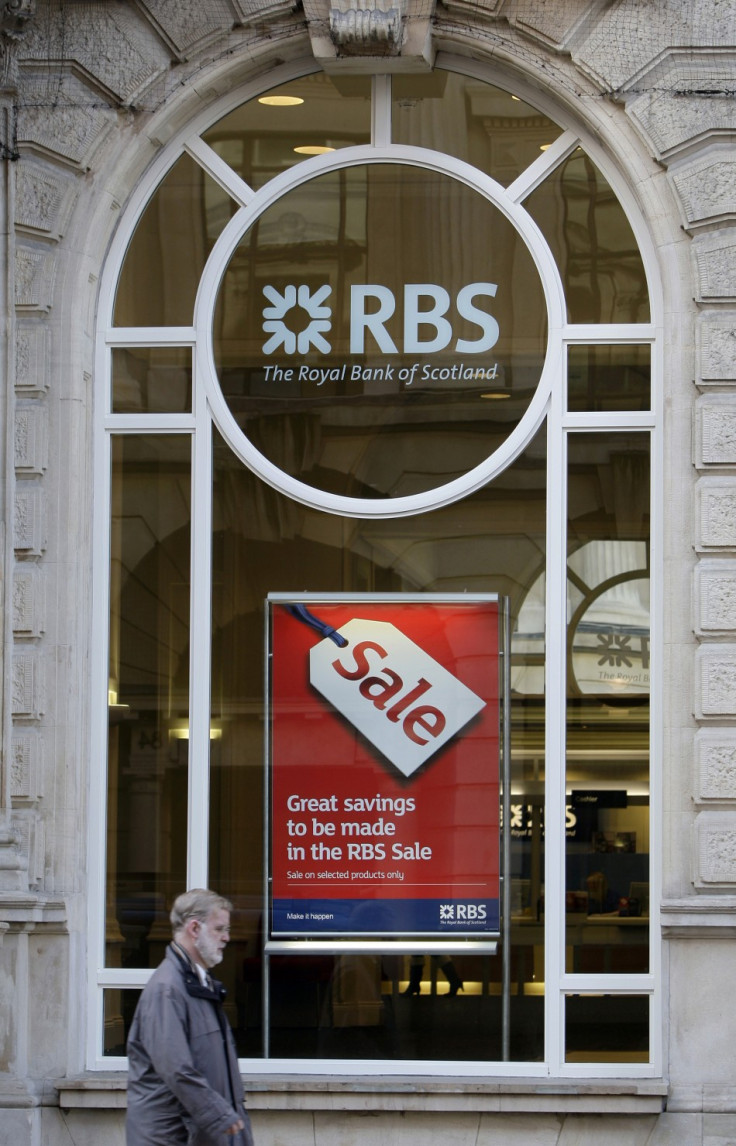The RBS Abu Dhabi Sale Rumour: Raising a Zombie Bank from the Dead?

One of the first lessons bankers absorb in their training is the importance of timing.
In fact, it starts even earlier than that, with the most fundamental calculations taught in business school around the world: the time value of money.
Put simply, a dollar today is worth more than a dollar tomorrow.
So when someone is more concerned about *when* they are paid than *what* they paid, they're not in the best position to cut a deal.
It's easy to get the sense that this is weighing on the minds of those tasked with the titanic (if not impossible) task of recouping the £45.5bn her Majesty's Treasury decided to "invest" in RBS as it teetered on the brink of collapse at the peak of the 2008 credit crisis.
On the one hand, UK Financial Investments Ltd (UKFI), which manages the government's myriad banking stakes, probably doesn't want to hold onto "zombie" RBS shares in perpetuity. On the other, if it dumps the husk of the government's 82 PERCENT stake now, it's unlikely to come within a Parliamentary mile of the £45.5bn chalice.
But even considering that sympathetic view, it's still incredibly difficult to understand the logic behind the leak that gave us today's RBS headlines (and make no mistake: it was a leak and Auntie's journalists are usually the preferred source to float such stories into the news cycle).
RBS shares have been stuck in a 26p/28p per share rut since February, its Coutts & Co. subsidiary was only yesterday fined £8.75m for "serious" and "systemic" lapses in money laundering controls and weeks-long talks to sell its Asia-Pacific businesses to Malaysia's CIMB Group have yielded nothing.
It's not like the overall market conditions for investment banks have improved of late, either. Eurozone data suggests the region is alarmingly close to slipping back into recession and the UK looks mired in a flat-growth strategy as Chancellor George Osborne focuses on debt and deficit reduction.
So why now?
The story has driven some strong traffic in RBS shares, with volumes Tuesday close to the 90-day average, according to Reuters, but the news agency also reported that talks with the presumptive buyer - member of the Abu Dhabi Royal Family - have been months in the making and haven't advanced to any significant degree.
And let's not forget that it was only a month ago that CEO Stephen Hester told the BBC's "Andrew Marr" programme that it would take "quite a few years" to exit the government's stake and that opportunities to sell would come "in good time".
It's hard to imagine that "good time" has arrived.
Perhaps the leak was a calculated effort to gauge market reaction or to tease out any potential rival bidders? In either event, it's unlikely to impress the Abu Dhabi contingent, or their savvy advisor, Amanda Staveley, who's PCP Capital Partners has helped steer some of their money into Barclays and Manchester City Football Club.
In fact, efforts to "pump" the price of RBS shares in the middle of negotiations with the Abu Dhabi royals is a tactic best described as more boiler-room than drawing-room.
Malaysia's CIMB Group can't be terribly pleased with the developments, either, and may likely demand more surgery -beyond the closures of units in South Korea and Indonesia - on the Asia-Pacific assets as a result.
And unless the leak ignites a longer-term improvement in RBS shares, it won't keep the fickle attention of market participants, either. They've had more than a year to assess the value of the bank under the stewardship of Stephen Hester, and they seemed, until today, comfortable with a 27p share price.
Timing is everything. And in this case, it seems, if the timing turns out to be wrong, the government will find itself more in the "when am I paid" not the "what am I paid" side of the RBS trade.
© Copyright IBTimes 2025. All rights reserved.



















